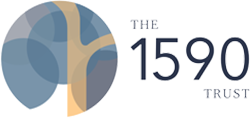Computing
| Mr Walters | jwalters@conyers.org.uk | Mr Coleman | ccoleman@conyers.org.uk |
Key Stage 5 Curriculum Map
Curriculum Intent
- To be able to apply ICT solutions to real life scenarios both logically and creatively.
- To have an understanding of the modern digital world and how this can be applied to a business context.
- Be able to assess , decompose and give IT solutions to a range of ICT and business issues.
Key Knowledge and Skills
The aims of this qualification are to enable learners to develop:
- an understanding of and ability to apply the fundamental principles and concepts of computer science including; abstracton, decompositon, logic, algorithms and data representaton
- the ability to analyse problems in computatonal terms through practical experience of solving such problems including wrirng programs to do so
- the capacity for thinking creatively, innovatively, analytically, logically and critically
- the capacity to see rela_onships between different aspects of computer science
- mathematical skills
- the ability to articulate the individual (moral), social (ethical), legal and cultural opportunities and risks of digital technology.
Sequence Discussion
The sequence is designed to develop programming knowledge over time, leading to the final production of a major coding project. It achieves this through the teaching of computational thinking and problem solving: Thinking Ahead, Thinking Logically, Thinking Abstractly etc. These areas are built upon and implemented alongside real-world problems for students to solve. These problems increase in complexity as the course develops. The theory side follows a similar approach, starting with computing basics, leading to high level maths which facilitate the project.
Year 12
Half Term 1
Types, Structure and Function of the processor.
Introduction to computational thinking
Half Term 2
Input, Output and storage.
Operating systems – Systems software
Console programming essentials (Major Programming Essentials, Thinking Procedurally, Stacks and Queues, Recursion)
Half Term 3
Types of programming language.#
Algorithms Console programming essentials (Major Programming Essentials, Thinking Procedurally, Stacks and Queues, Recursion)
Half Term 4
Compression and encryption.
Testing
Half Term 5
Databases
HTML/CSS /Javascript
Half Term 6
Database
Mock Project
Year 13
Half Term 1
Networks Web Technologies
Project introduction
Half Term 2
Networks Web Technologies
Project introduction
Half Term 3
Data Types Ethics
Project +
Half Term 4
Boolean Algebra
Computation Methods Cache / Thinking Recap
Algorithm recap and exam prep

